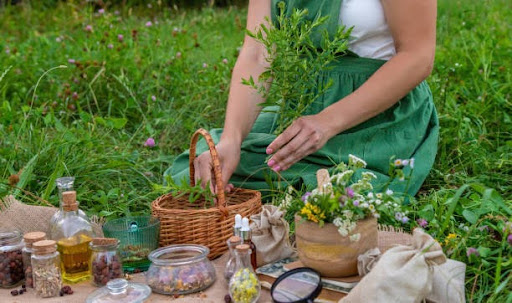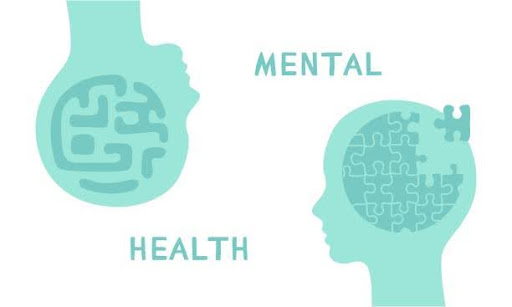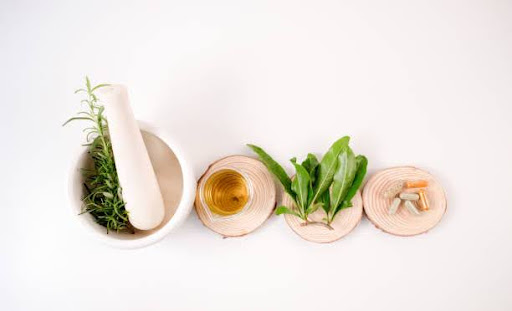Clinical Organic Herbalism: Advancing Plant-Based Treatments in Modern Healthcare
Since natural and holistic medicine is gaining popularity, Clinical Organic Herbalism is a discipline that strongly impacts the way we use and relate to plant medicine. Using knowledge from the past along with proven scientific data, Clinical Organic Herbalism connects nature with today’s health systems. As there is a rise in interest in complementary treatments, this area is bringing about important changes in how diseases are managed by merging with the body’s natural mechanisms.
Clinical Organic Herbalism and its Role in Current Medical Field
Besides using herbs for treatment, Clinical Organic Herbalism is based on science and leads to healthcare professionals using organic herbs for therapy. This kind of herbal practice is different from others because it needs deep observation, a close look at the patient’s medical history and tailored herbal remedies from approved herbalists. Many times, these practitioners join forces with regular doctors to make sure the treatment plan is both safe and effective.
Clinical Organic Herbalism is different because it focuses on buying organic, using the right dosage and caring for each individual patient’s needs. The herbal suggestions I make are meant to treat the cause of health problems, keep illnesses away and promote overall health in the long run.
How Organic Plants are Involved in Clinical Herbal Practice

The herbs used for clinical purposes are not sprayed with synthetic pesticides, herbicides or created using genetically modified methods. Because of purity, the plants can maintain their usefulness as medicine. Taking echinacea, ashwaghanda, turmeric and milk thistle helps many because they have both anti-inflammatory and detoxifying effects. But in clinic herbalism, prescriptions are given in an exact fashion, looking into the type of patient, their condition, drugs they take and their daily habits.
The use of plants grown naturally helps clinical herbalists to reduce the chances of using chemicals and ensures the body enjoys a stronger bond with herbal remedies. Energy Alley carefully makes herbal products in tinctures, infusions, extracts or powders to keep phytochemicals active and more available.
Attention to the guidelines from clinical Organic Herbalism and the findings of recent research.
It was a major issue for herbal medicine in earlier years; no science could confirm its effectiveness. Still, today Clinical Organic Herbalism makes use of research and knowledge from old herbal traditions. Different institutions are examining herbal remedies by testing them on people with anxiety, depression, digestive issues, hormone imbalance and weak immune systems.
In fact, St. John’s Wort can ease mild to moderate depression, as research on turmeric’s active compound suggests it may be useful for treating painful inflammatory conditions. It confirms their ability to help patients and suggests placing them in commonly used medical treatments.
Clinical Organic Herbalism helps progress personalized health support.
One important aspect of Clinical Organic Herbalism is giving attention to each patient’s unique needs. Unlike the standard pharmaceutical prescriptions, herbal therapies are formed to address the special needs of each person. They consider both physical as well as emotional, spiritual and environmental issues that affect a person’s health.
Doing a complete assessment lets herbalists identify what’s wrong and use organic herbs that treat the problem and strengthen the patient’s body. As an example, a herbalist may use nervous system and adaptogenic herbs for anxiety, depending on the patient’s stress causes, sleep and energy levels. This approach is usually not possible with standard medicines.
Matching with the Mainstream Mental Health Services

There has been a meaningful progress in recent times due to the teamwork between clinical herbalists and regular medical practitioners. More and more, herbalists support treatment teams in both regular hospitals, medical clinics and health centers. This way of combining both types of medicine helps people get better by making good use of herbal medicine and allopathy’s methods.
In the management of long-term health problems, these kinds of teams are useful, since medicine deals with symptoms and organic herbs try to bring balance to the entire body. Nowadays, both medicinal drugs and plant extracts are considered in the care of autoimmune issues, digestive problems and hormonal abnormalities to achieve good overall results.
Safety, Regulation, and Professionalism in Clinical Organic Herbalism
Because Clinical Organic Herbalism is becoming recognized, more importance is placed on standards, fair sourcing of herbs and safety. Most reputable herbalists are trained through tough courses, abide by strict practice standards and keep learning new things. They learn about the dangers linked to certain herbs which drugs should not be used with them and the details of human body processes.
In addition, using certified organic herbs helps guarantee that the products are extremely pure, sustainable and safe for everyone. When clinical herbalists pick pesticide-free plants and carefully made preparations, they guard their patients from possible dangerous contaminants and sustain the power of natural healing.
How Clinical Organic Herbalism Will Contribute to the Progress of Healthcare

There is a good outlook for Clinical Organic Herbalism, since healthcare systems are interested in using more affordable and sustainable ways of caring for people. Since the interest in functional medicine, studying plants and green wellness continues to rise, herbalism is set to play a major role in mainstream treatments. The use of technology allows herbalists to help more people by offering online meetings, AI solutions for checking herbs interacting with drugs and testing equipment in labs.
Moreover, there are now colleges and universities that give degrees in clinical herbal medicine which gives the profession more authority. More studies are coming out and patients are gaining benefits, leading many to think of herbalism as an important part of today’s healthcare.
Conclusion: Embracing Nature’s Intelligence Through Clinical Organic Herbalism
This approach means that nature, how people are unique and overall care are valued in a new way by modern medicine. Fusing the experience of ancient plants, careful medicine methods and organic quality aims to give patients safer and more eco-friendly ways to heal.
As healthcare advances, Clinical Organic Herbalism will expand and will also result in people returning to trust nature’s powers to help the body heal itself. This therapy is useful on its own or with conventional medicine since it helps people get the tailored, effectual and natural care they want.



